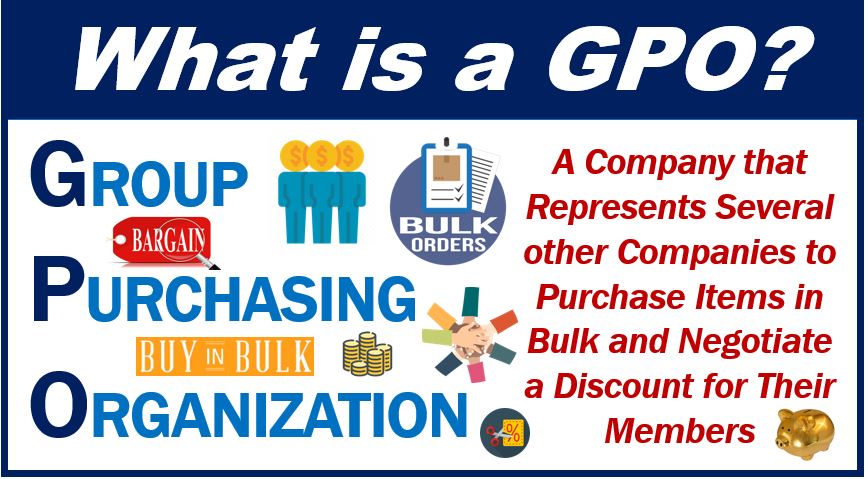One of the most important parts of running any business is your procurement process. Daily business activities are reliant on outside goods and supplies and a shortage of even a common item can greatly impact your company’s ability to perform its day-to-day tasks.
However, procurement expenses can be a challenge as can finding an outside supplier to provide the stock you need. That’s why a group purchasing organization can help your business. If you’ve never made use of group purchasing reading a guide to group purchasing can give you a detailed look at how the process works. If you’re new to the concept here is a brief overview of what it does and how it can help you.
What is a Group Purchasing Organization?

A group processing organization (or GPO) is a company that represents several other companies to purchase items in bulk and negotiate a discount for their members. This is highly useful because bulk purchases offer excellent value in terms of economy of scale but smaller companies often cannot take advantage of this.
By using a group processing organization smaller companies combine their purchasing power and need to acquire a vast amount of goods at a lower discounted price. This results in notable savings and your company can end up paying far less by going through a group processing organization than you would by buying the same items on your own.
Three Reasons to Use a Group Purchasing Organization
1. There are several advantages to using a GPO to handle your supply and procurement needs. As noted a key reason is the reduced cost for supplies and as supply costs can be a sizable part of your business’s overhead reducing these expenses is very beneficial to continued operation.
2. Another reason to use a GPO is the reduction in work for your company. Negations with outside vendors are time-consuming as is the associated research with finding the right companies and the best deals. By having someone else manage this aspect of your business you not only save money you can also use the time and effort you’ve saved on more important business matters.
3. A GPO is also a useful source for supply chain management and useful information. Supply chains are often impacted by outside factors such as natural disasters and raw material shortages your contracted group processing organization can react to these concerns without you running low on the goods you need. Plus, as industry experts they keep you informed on important news, industry changes, technological advancements, and can supply useful learning tools such as videos and white papers.
Horizontal Versus Vertical
When choosing a group processing organization there are two different types you chiefly encounter horizontal and vertical. The main difference between the two is in market segment and specialization. A horizontal GPO is broad and focuses on multiple different industries their client list will include businesses in many areas. They tend to focus on nonspecific goods and services that are used across various industries.
By comparison, a vertical GPO tends to focus on a specific industry and supply goods and services that of a particular need for the type of client they focus on. Two examples of vertical GPOs include specific manufacturing market segments and healthcare.
Final Thoughts
An important aspect of the modern business marketplace is contracting with outside parties for essential goods and services; this is rather common in the software industry. These outside companies allow smaller and mid-sized companies access to specialized skills and service tools they would not have been able to afford or have access to otherwise.
Your procurement and supply chains are no different and using a group processing organization allows several companies to work together with industry professionals to access the benefits regularly enjoyed by larger global corporations.
Interesting related article: “What does the word Purchase, as a verb and noun, mean?“

